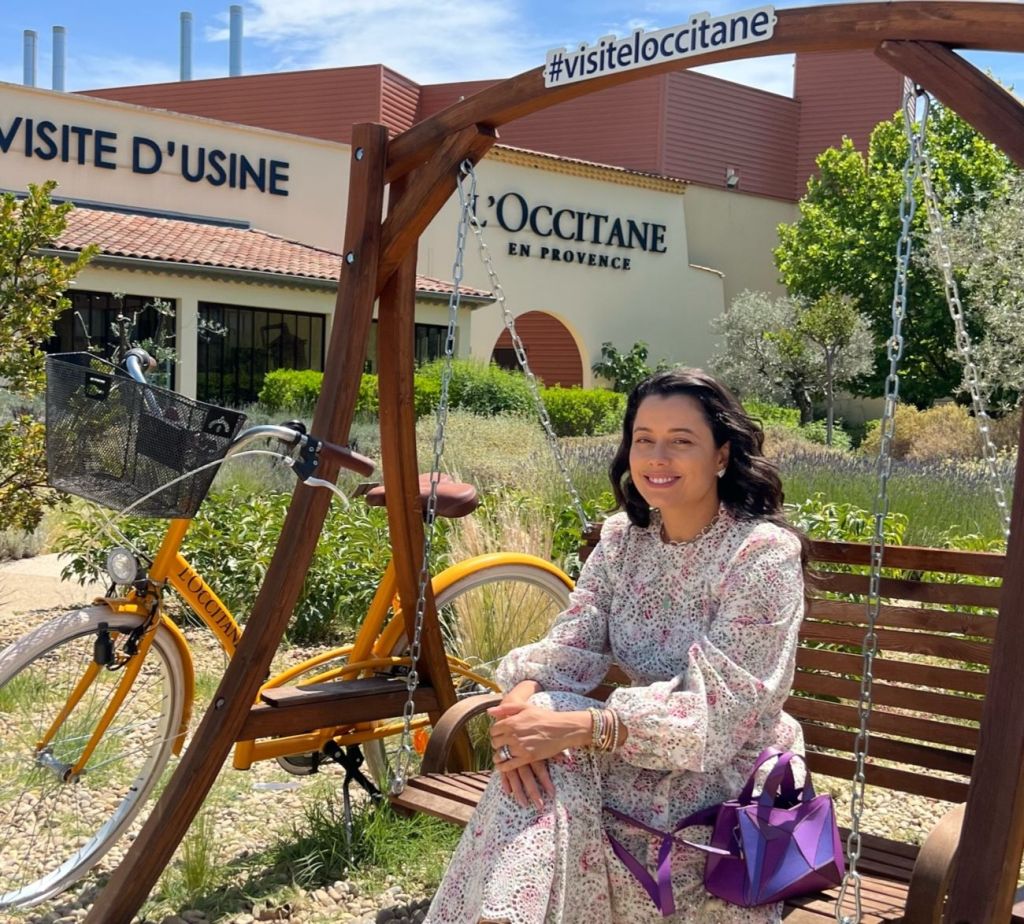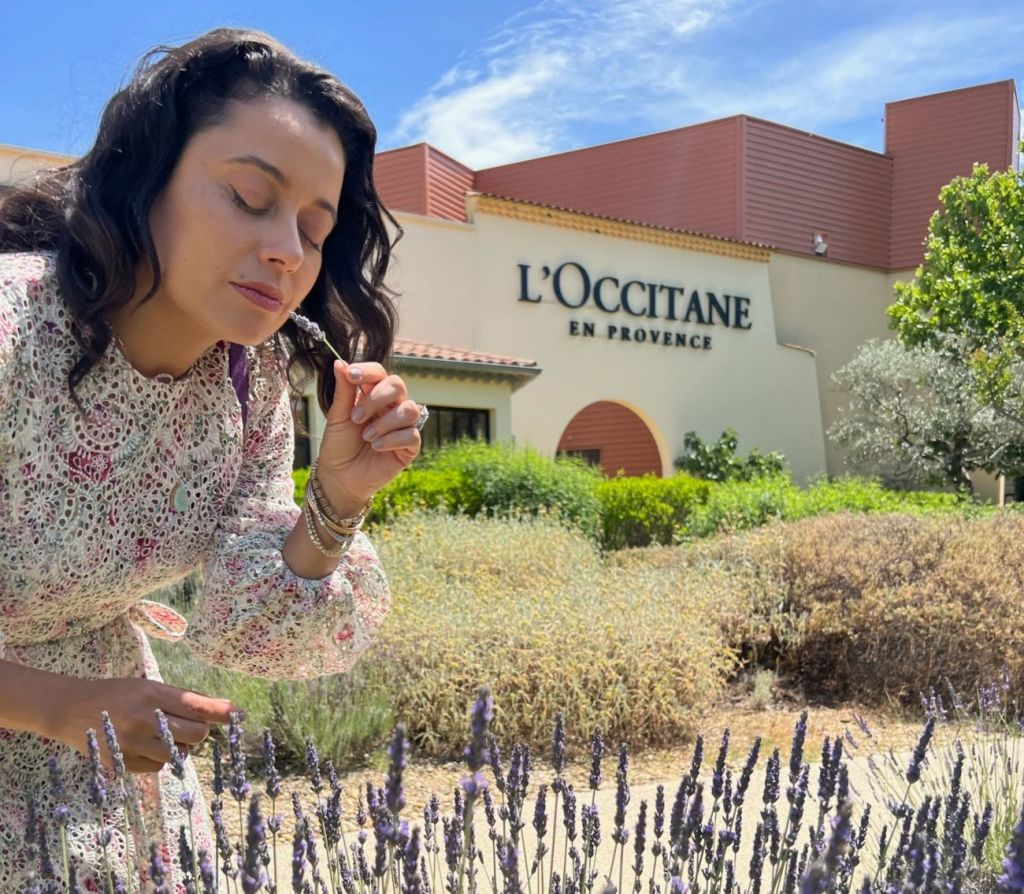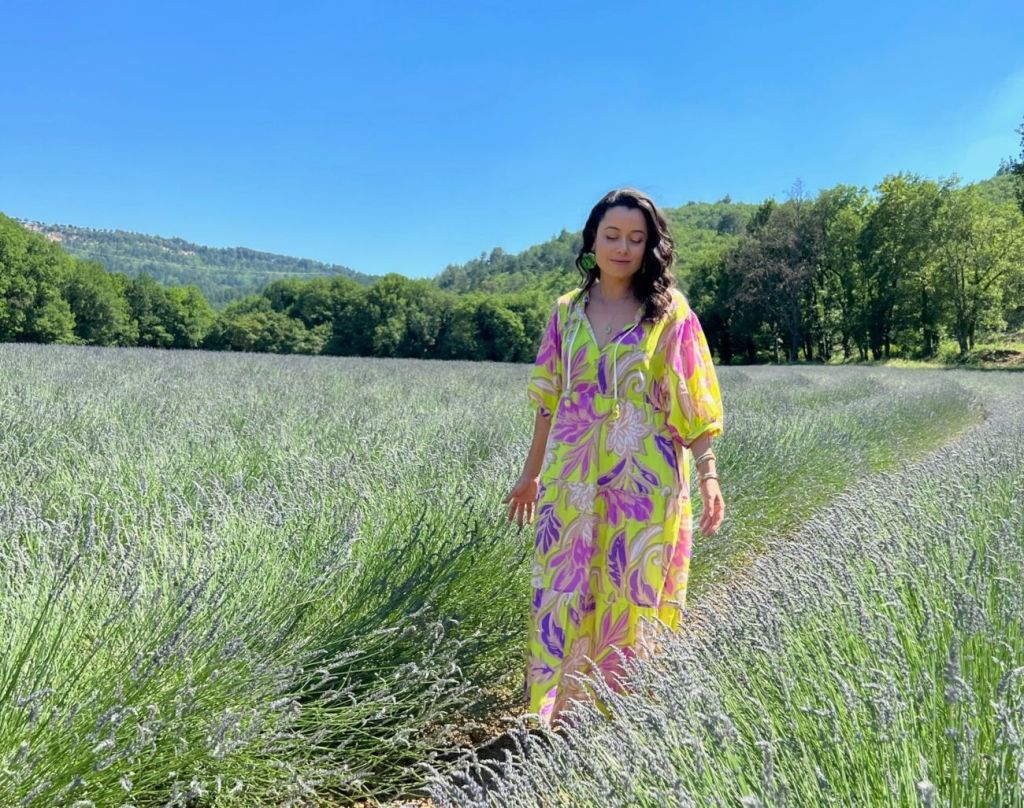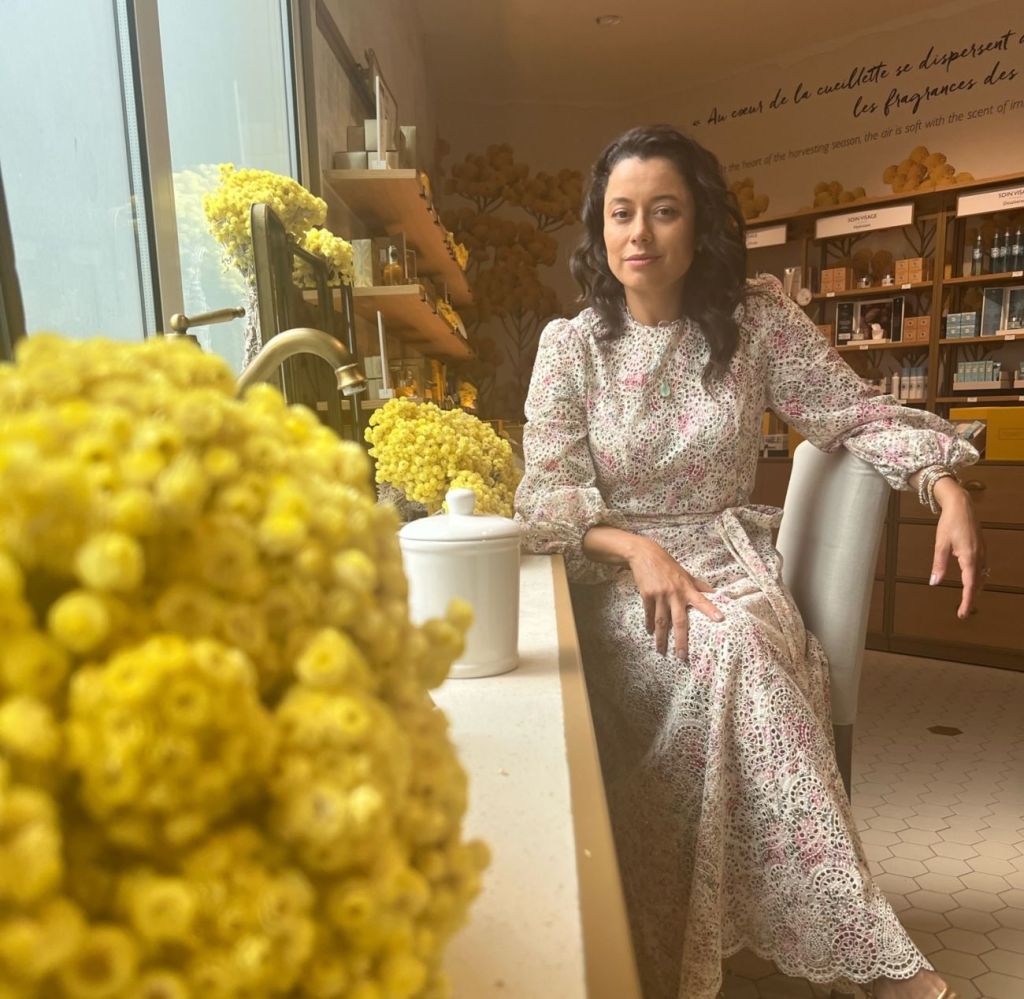It is inevitable to encounter idyllic and picturesque scenarios as we travel along the roads that cut the provence . Fields of lavender, wheat, vervain plantations, herbs and medicinal plants sprout from these lands and put us in direct contact with a rural way of life.
Time seems to pass unhurriedly in this part of the south of france and the principles are condensed into one: care for the land and people.
Amidst the perfumes, flavors, colors and textures that only provence has, one of the most significant lessons we learn here is the zealous relationship between the countryside and those who depend on it.
When we visit Provence, we actually travel through a region full of small towns that offer us a celebration around good food and accommodation that connect us with history and local life.
The feeling of being here takes us to the countryside, with the countryside being the heart of this vast territory. And who is at the center of this story are the small producers which are motivated by sustainable precepts and carry the human factor in the process – an ingredient that makes all the difference.
In addition to the cheeses, breads, sausages and other gastronomic delights that supply the street markets in city of Aix-en-Provence and local restaurants, for example, aromatic plants also stand out.
the producers
“For us, taking care of nature is essential, which means, on the one hand, respecting the living, then trying, if possible, to preserve what already exists”, tells me the farmer Philippe Mary during our visit to your property.
He runs the farm with Magalie Mary his wife, and verbena born from their lands. A typical shrub from the Mediterranean basin, verbena is the most citrusy and one of the most aromatic herbs in Provence.
The couple’s property is interspersed with woods and forests, in a system that collides with the concept of agroforestry. “We try to balance the environments so that there are insects, animals and plants so that they can live in harmony. All this will allow you to regenerate life and balance the environment a little”, says Magalie.
Much appreciated in the cosmetics industry, the verbena planted by the couple is sold to a brand that is also a daughter of these lands. I refer to L’Occitane a company that develops beauty products and natural fragrances with essential oils.
Located in the commune of manosque 55 km from Aix-en-Provence, L’Occitane has contracts with several local producers – there are 130 in all in France – who supply raw materials to the company, which, at the same time, pays close attention to these collaborators.
“With L’Occitane we have a privileged relationship. They take this into account and pay us very well for the work we do and therefore allow us to produce good vervain in Provence”, reveals Philippe.
L’Occitane

Since it was founded in 1976, L’Occitane has been powered by sustainability and the attentive look at biodiversity . The care taken with the ingredient, since its origin, is seen up close and better understood when we actually set foot in Provence.
Wandering through the plantations here, we smell aromas and weave stories together. So, I say that L’Occitane translates this land through its products.
brand founder, Olivier Baussan has, since the beginning of the company, the responsibility to look at people and the environment around, which make it possible to transform the riches of this soil into cosmetics admired by the world.
“L’Occitane’s idea at the beginning was plants. So it was to capture what was in the plants and be able to offer it to the public”, says the founder in a conversation at the brand’s headquarters in Manosque while recording the CNN Travel & Gastronomy .
Today, after almost 50 years of history, the company has in its main portfolio perfumes and beauty products, which are manufactured in the south of France and sold on five continents, in more than 1,500 own stores in 90 countries.
“I have a phrase that I really like to say: the important thing is to know how to offer people standing up what they can only find on their knees. You have to know how to be humble and respectful and, at the same time, know how to show products, fetching old recipes from the elders to be able to say: ‘well, here we are associating the past and the present’. And the best way to respect the future is to understand the past”, completes Baussan.
L’Occitane in Provence
Home to around 20,000 inhabitants, the commune of Manosque almost a 35-minute drive from Aix-en-Provence, retains a very Provencal character, especially in its quiet center, which has houses and buildings that look like they came out of a movie.
The original L’Occitane factory is located here, on the outskirts of the city, and allows us to delve into the practices and history of the brand. The headquarters covers factory a mediterranean garden and store-museum with the company’s cosmetics.
For those who want to know more about the processes that plants go through, from their harvest in the field to their transformation into essential oils and consequently into creams, soaps and perfumes, factory guided tour it’s a good request.
With an area of 48,000 m² and employing around 800 employees, the factory is divided into different spaces, and the tour takes us to production workshops, where we can check how the formulas are combined, how the products are manufactured and even how they are packaged. – around five million units are packaged per year.
There is also an area where we can smell some fragrances and perfumes. Lasting one hour, the tour costs around €5 per person in a group – the individual fare starts at €6.
Visits take place seven days a week from April to October and from Monday to Saturday from November to March.

Right in front of the factory is the mediterranean garden a natural space full of wild and cultivated species that awaken our senses.
Some of them, such as lavender, verbena and almonds, are used in the company’s cosmetics and remind us of the care with the origin and raw material established by L’Occitane.
“Actually, when we talk about biodiversity, we always talk about nature, on the one hand, and agriculture. When we are in a place like here, we can see that here it is wild, here it is cultivated. And, in fact, everything works together”, emphasizes Jean Charles Lhommet, director of biodiversity and sustainable ingredients at L’Occitane.
In line with what the company actually preaches and accomplishes, he emphasizes that producers have an intrinsic role in the process.
It’s not just about lavender. It is lavender and the knowledge of farmers and a landscape that is magnificent because it is integrated with nature.
Jean Charles Lhommet
THE lavender , in fact, is often referred to as the “blue gold” of Provence, due to the impact of the famous fields on the local economy and also on tourism. For those who really want to visit rich lavender fields – and to register beautiful clicks – the tip is to drive to Valensole .
Approximately 10 minutes away from the factory, the small commune houses the Valensole plateau , which are open access lavender fields that exude welcoming scents. Every summer, the plantations bloom and delight the millions of tourists who pass through here.

Past, present and future
The L’Occitane factory in Manosque still houses a store-museum with all brand lines. Arranged on the shelves, some products also tell us the history of L’Occitane, such as the first soaps, creams and cosmetics with essential oils.
For those excited about shopping, good news: all products have a 10% discount compared to other official establishments of the brand.

Speaking of the past, outside is the original contraption that Olivier Baussan used in the lavender field: it is a steam distiller that extracted the pure essential oil, the “soul of the plant”, according to the founder – there is even a photo next to it. side of the machine in the middle of the plantation so that we can get an idea of how the work was done.
“It’s our brand’s obsession to always understand nature better, to bring out the best afterwards within our products,” says Nicolas Geiger, CEO of L’Occitane for the Americas.
During the visit to the factory garden, he told me about the company’s redoubled attention to ingredients that come from the region.
“All our lines are based on ingredients. Because the quality of the raw material is essential to have a quality product”, he adds.
For the future Olivier Baussan told me that the idea is to expand the concept of the factory so that the surroundings become a tourist circuit . The addition of a butterfly garden is in the plans: in addition to being beautiful, the intention is to show the impact of these insects on pollination.
The circuit also intends to encompass a nearby château, a medieval garden and a caramel factory . But why caramel?
“Caramel is an old confectioner’s tradition, and Provence made a lot of confectionery, and they also made a lot of caramel. There are berlingots (a typical French sweet), fruit pasta, nougat and caramels”, explains Baussan, who already has a 1968 machine for making the sweet.
Whether in the midst of the aromas of Provence or even with its sweets, the fact is that the region enchants us in the smallest details, as well as the treatment and touch with the earth connects us to a simpler way of life: without haste and with a lot of elegance.
Source: CNN Brasil







